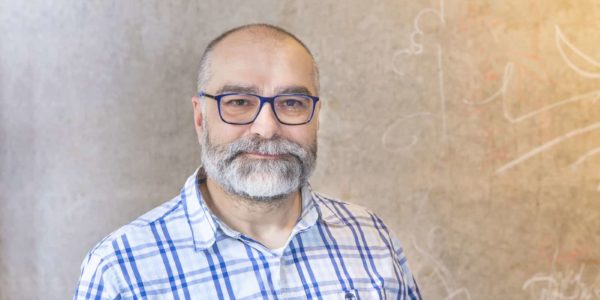Switzerland is a global leader in tech, while Wikipedia and its sister projects have had a revolutionary impact on the internet. Within this context and in line with the aims of the global Wikimedia Movement, Wikimedia CH aims to play an important role in technological innovation and topics of open source, open software, and tools in general. Our innovation programme, which started in summer 2022, shall act as an enabler for all other programmes. In this interview, Innovation Programme Lead Ilario Valdelli tells us about his experineces and new challenges he faced in this first year:
One Year of Innovation programme. What was the biggest surprise you experienced in this year?
The biggest surprise is that innovation is getting faster and faster. New technologies and new ideas are emerging and people are very attracted to these innovative projects such as artificial intelligence for example. In this case the expectation from an innovation programme is enormous but the main challenge is to take the right direction and not get stuck in unmanageable solutions. The feeling that people have is more that innovation brings good value but can be very expensive, while a good innovative project is more a project that saves money, time and helps people work more efficiently. Therefore, a relatively large initial investment must then be followed by a return on investment in other forms. Experimenting, therefore, does not mean innovating, while innovating then means creating something that benefits the user.
What are the biggest obstacles and learnings you had this year?
The main obstacle is keeping up to date and following new technologies. This is not an easy way to work as experimenting with a new technology can be resource intensive and can block other activities. For a small reality like that of Wikimedia CH it is not possible to spend a lot of money, so the right solutions to focus on must be chosen. In this case it is not enough enthusiasm, but also a lot of experience is needed to avoid taking a direction that may be inefficient or cannot bring the expected impact.
How did the community and the other chapters react when you present this programme?
The reaction is very positive. 80% of people who participated in the initial survey to give input to the strategic direction of the innovation programme asked to be told about our programme. The community feels that Wikimedia projects are losing their innovative impact and something should be done to renew this technology. The chapters’ reaction is less enthusiastic, of course, because they have sometimes limited resources, but they remain attentive nonetheless. In any case, the greatest innovative drive comes from the community which, however, must be supported to develop effective ideas and above all to move from vision to realization.
When you look at the results, what are you particularly proud of?
Nothing specific because the programme is young and needs more time to have a bigger impact. At the moment the best result is having paid attention to innovation within the movement and having elaborated a good plan for the following years. Personally, I don’t realize an idea if it isn’t well planned and if it isn’t carefully evaluated. The two main directions of the innovation programme: climate change and AI seem very promising to me but because the approach to them is innovative in itself, so don’t use AI just to use AI but use it to improve what we already do.
What is the next point on you to do-list?
The innovation programme has few projects under the incubator while the main activity is to help other programs, but these few projects will really make an impact for the Wikimedia movement. So on my agenda first of all there is the improvement of existing tools and the release of the climate change project, then the AI project will follow which will go in a direction not yet defined, this year a research will be carried out on which aspects aim to apply AI effectively to our mission as a movement.
Thank you very much for your statements, Ilario!




